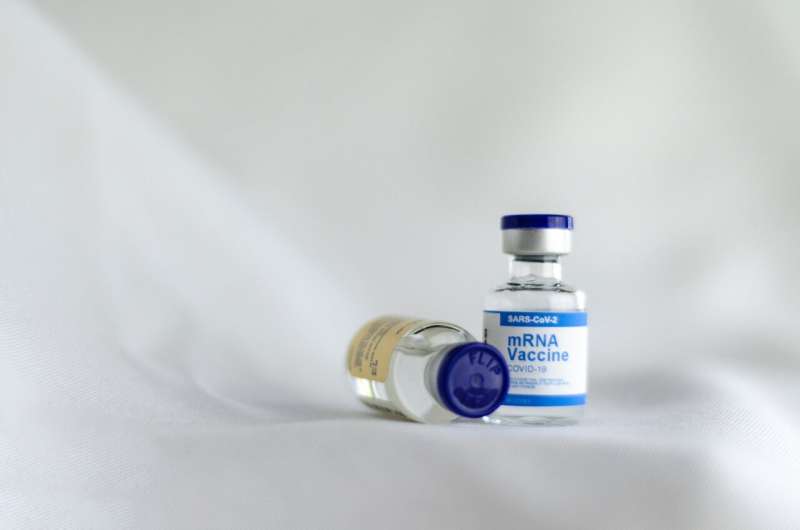
People who received Johnson & Johnson’s COVID-19 vaccine may benefit from a booster dose of Pfizer or Moderna, preliminary results of a US study published Wednesday showed.
The study, funded by the National Institutes of Health (NIH), was eagerly awaited in the United States because it looked at the possibility of “mixing” vaccines—using a different vaccine than the initial doses for the booster shot—which is not currently allowed in the country.
The study was conducted on 458 adults who had been vaccinated with one of three US-approved brands (Pfizer, Moderna or J&J) for at least 12 weeks.
These three groups were each divided into three new groups to receive one of the available vaccines as a booster. The nine groups consisted of about 50 people each.
Researchers then analyzed antibody levels 15 days after the booster shot.
For people originally inoculated with J&J, antibody levels were four times higher after a J&J booster, 35 times higher after a Pfizer booster and 76 times higher after a Moderna booster.
And antibody levels for those who had originally received Moderna shots were higher “irrespective of the booster vaccine administered,” when compared with those who had initially received Pfizer or J&J, the study said.
Additionally, “no safety concerns were identified” after booster doses were administered, it found.
The study, which has not yet been peer-reviewed, has several limitations, however.
The number of participants was small, and the immune response could evolve over time, beyond the 15 days observed during the study.
“Important not to get too carried away with the findings,” tweeted Peter Hotez, a professor at Baylor College of Medicine.
Results from trials on a second J&J booster shot conducted by the company itself were “impressive,” he said.
The NIH study should fuel discussions by a US Food and Drug Administration (FDA) expert committee, which is scheduled to consider applications for a booster dose from Moderna and J&J on Thursday and Friday, respectively.
Source: Read Full Article